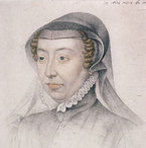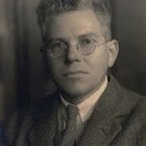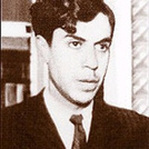|
One thing we've learned recently at Show Me Something Interesting is that the Barbican is really good at getting last minute replacements for indisposed Sopranos. First, the wonderful Susan Gritton stepped in for Anna Caterina Antonacci in the recent Handel/Vivaldi/Pergolesi concert, and more recently, Inga Kalna stepped in for an under-the-weather Anja Harteros in the concert performance of Handel's Alcina on Saturday. In both instances, a good solid performance from a technically gifted and an emotionally communicative artist ensured that the show most definitely continued. The performance was dedicated to one great lady who always gave her audiences a thrill (and more often than not, a trill): the late, great Dame Joan Sutherland, herself a famed Alcina. In fact, it was after her performance in the role at La Fenice, Venice in 1960, that she was dubbed "La Stupenda."
Alcina is an opera packed to the brim with great tunes. The libretto is derived from the same source as Handel's Orlando and Ariodante, and Vivaldi's Orlando furioso. The original text was penned by Ludovico Ariosto and had as its backdrop the war between Charlemagne and the Saracen army which was invading Europe. The plot for the opera is taken from the storyline in which the Saracen Ruggiero, betrothed to the Christian warrior woman Bradamante, is captured by the sorceress Alcina. Ruggiero and Bradamante are thought to be the ancestors of Ariosto's patrons, the powerful d'Este family of Ferrara. The libretto was first put to music by Riccardo Broschi, brother of Carlo Maria Broschi, otherwise known as Farinelli. The original cast for Handel's opera had some star names as well as some relative unknowns. The title role was taken by Soprano Anna Maria Strada del Po, who had received personal coaching from Handel. She was not the most attractive of people, and was often called "the Pig". Handel's confidant, Mary Pendarves (nee Granville), said of del Po: "La Strada is the first woman; her voice is without exception fine, her manner perfection, but her person very bad, and she makes frightful mouths." The part of Ruggiero was taken by the famed castrato Carestini, who had worked for composers such as Johann Adolf Hasse, Leonardo Vinci, Gluck and Porpora. He came to London in 1733 to perform with Handel's opera troupe. Known for having a high opinion of his own abilities, he is reported to have questioned the suitability of the aria Verdi prati, thinking it beneath him. Handel heard about this, and: "went, in a great rage, to [Carestini's] house, and in a way which few composers, except Handel, ever ventured to accost a first-singer, crie[d] out: "You toc! don't I know better as your seluf, vaat is pest for you to sing? If you vill not sing all de song vaat I give you, I will not pay you ein stiver."" Suffice it to say, Carestini sang the aria, which was encored throughout the original run of the opera. Anyway, let's get back to the present. The role of Alcina is demanding not just vocally, but psychologically, as the opera charts the mental and emotional degeneration of an all-powerful sorceress, who subdues a whole island, and acquires various lovers, by preternatural means. Vocally, Inga Kalna was more than qualified for the job, which required several different vocal styles. She had previous experience in the role, and had performed it with Minowski before. The first of her arias, the high-lying "Di', cor mio", is the epitome of velvety mellifluousness, while her second aria, "Si, son quella", with its continuo accompaniment and solo cello, is more subtle, almost fragile. In "Ah! mio cor", another high tessitura aria, Kalna is at her best in the heart-rending A-section, where Alcina learns of Ruggiero's deception. The C minor key hints at a darkness beneath the grief as C minor is often associated with dark deeds. The moving bass and staccato chords in the strings feel almost like a relentless beating inflicted by her own broken heart, while Kalna's distraught cry of "O dio" towards the end of the A-section, moving between high G and Ab, could not be more moving. In the B-section, with violins reminiscent of "Un pensiero nemico di pace", Alcina threatens her lover with vengeance if he does not remain with her. After attempting and failing to send the spirits of vengeance against her former lover and his entourage, and realising her powers have left her, she sings the moving "Ombra Pallide". The aria is filled with dissonance and suspensions, and swift changes between major and minor during the coloratura passages. These all denote the confusion and anxiety Alcina feels now the magic she relied upon has left her. Kalna became Alcina in this aria, giving a demoralised and unsettled, yet still regal interpretation of the troubled Queen. A couple of the high notes were slightly forced, but the melancholic beauty of Kalna's voice carried through the difficulties. Her penultimate aria, "Ma quando tornerai", reminds one of King Lear: powerless yet still attempting to retain the trappings of power. The A-section is all bluster, threatening Ruggiero with calamity when she captures him, while the B-section is all forgiveness and willingness to take him back. What Alcina does not realise, in a conscious manner, is that both her threats and her appeal rely on her sorcery: without it she is powerless. This is reflected in the scoring: wide leaps in the A-section denoting hysteria, bluster, an attempt to convince both Ruggiero and herself that she is still and invincible sorceress; and an unstable key in the B-sectionmirroring her own internal instability, and the breaking down of her external world. Her final aria, "Mi restanto le lagrime" is in F# minor, a key which Handel used to denote extreme emotion and tragedy, as in Cleopatra's aria "Se pieta de me non senti". Kalna excelled in this aria, which she imbued with such pathos and despair, the whole audience let out an audible sigh at it close. A wonderfully restrained, regal interpretation from Kalna that, while not explosive, was thoughtful, considered, and refreshing. The fireworks, however, were oh-so-present in the form of Vesselina Kasarova, the Bulgarian mezzo cast as Ruggiero. A veteran in the role, few singers spark such furious debate in Baroque, or even in general, operatic circles. If you take the three main arias for instance, you will see why. In "Verdi Prati" and "Mi lusinga", for instance, the beauty and purity of tone that one would find with Philippe Jaroussky, for example, is not there. The sound is harder, the register changes more marked, and there is more portamento than one would usually associate with the Baroque period. But, quite frankly, I don't care! The emotion in the voice, the acting, the pathos, the power of the delivery held me, and practically everybody in the hall, transfixed. "Mi lusinga" was especially heartbreaking, as the troubled mind of a man freed from one illusion, but now unable to tell what is true and what is not, was portrayed so accurately that one really felt the confusion and frustration of the re-awakened warrior. And that brings me on to another point: Kasarova managed to portray a man, a warrior, from a man's perspective. Standing, legs apart, leading slightly backwards, gesturing aggressively towards the audience in her black jump-suit, Kasarova was the epitome of masculinity, without falling into caricature. For someone so able to play feminine roles (see her Rosina on YouTube), and with such a feminine speaking voice, it is remarkable how easily she fits into the trouser roles in Handel. The effect was only slightly marred by her kitten-heels, which she nonetheless managed to swagger in! The highpoint of her performance was the astounding "Sta nell' Ircana". Full of register crashes galore, chest voice punches, flashing eyes, and pointing fingers; this castrato tour de force was superbly managed by the Bulgarian. Maybe some purists can complain about the technique, such as the cleanness of the arpeggios or the slight hooting in the middle of the voice, but I just think back to Dame Clara Butt, Elena Suliotis, and Maria Callas, and the dramatic dives into the chest register which thrilled their audiences (in fact, Clara Butt did it more and more often after finding out her audiences expected it of her). Anyway, she got the biggest hand of the night, and rightly so. Even Romina Basso was clapping away like mad after "Sta nell' Ircana", hands above her head, and stamping her feet on the floor - she wasn't the only one! Of the rest of the cast, Romina Basso, singing from the score, and the young treble Shintaro Nakajima, impressed the most. I have waited a long time to hear Basso live, as her recording of "Gaude Felix" from Vivaldi's "Juditha Triumphens" on YouTube showed a beautifully dark and rich mezzo-soprano, almost contralto-like tone, full-bodied and well rounded. She did not disappoint. Hearing her live was even better than hearing recordings for her. The voice is so plumy, so warm, and full of expression, that she could be singing about cleaning the toilet for all it would matter. Her first aria, "E gelosia", had Basso firing out her trademark coloratura, as did the second, "Vorrei vendicarmi", where she hit four low A's in the fast section, and serenaded us with gorgeous legato singing in the larghetto. "Vorrei vendicarmi" also benefited from the augmented bass section of the orchestra, with three double basses and three bassoons, as there are parts of the aria where the continuo rumbles away before a particularly difficult piece of coloratura. Her third aria, "All'alma fedel", was all sumptuous melodies and rich tones, which had me grinning like a Cheshire cat. Playing the role of Oberto, Shintaro Nakajima almost upstaged the rest of the cast! Surety of tone, a confident stage presence, and the ability to act and interact with his colleagues, marked him out as one to watch once his voice matures. His last aria, "Barbara! Io ben lo so", is a coloratura tour de force which has long passages, difficult intervals, and two high A's. Nakajima pulled it off brilliantly, threatening the witch Aclina as he went, going well above the stave at the end, and displaying a formidable chest register on the initial "Barbara" of the A section. He was so good that he had to come back on stage after his last aria due to all the clapping and shouting from us in the audience. All in all, it was an excellent performance, one I would thoroughly recommend to anyone, whether a Baroque aficionado or a first-time listener to Handel - there's something for everyone here. I think most of all the sense of enjoyment from the performers, both the cast and the orchestra, made it such an enjoyable evening. I will not forget Kasarova in her kitten-heels and jump-suit, nor will I forget Basso feverishly applauding her, along with this rest of us.
0 Comments
Your comment will be posted after it is approved.
Leave a Reply. |
Categories
All
Archives
September 2014
|
MOST VIEWED POSTS
© James Edward Hughes 2013
 RSS Feed
RSS Feed





